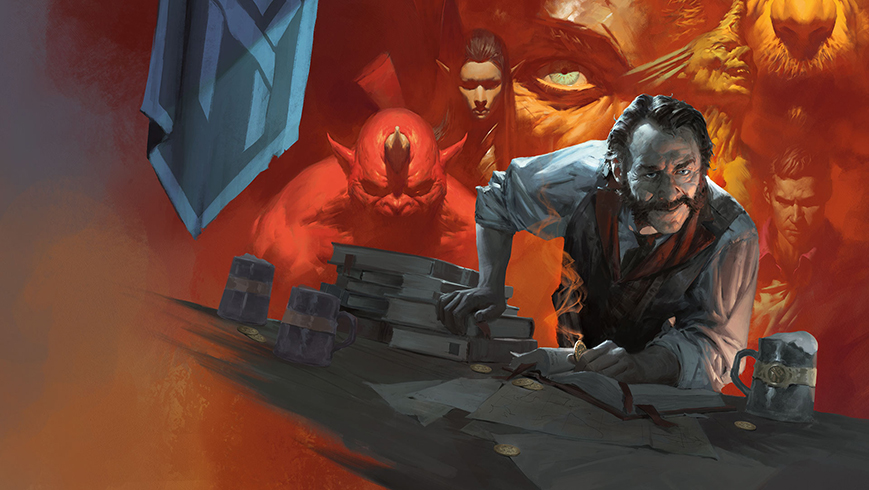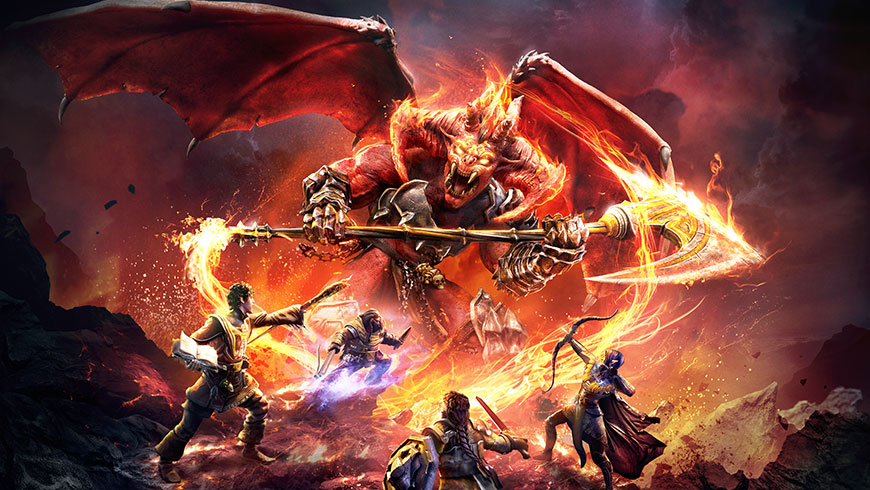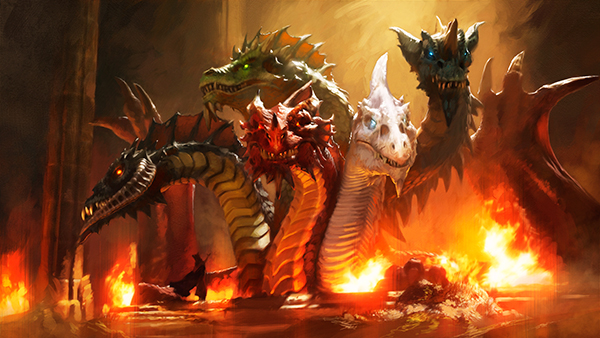Thanks to the popularity of Stranger Things, by now most people have had some kind of interaction with the legendary, quintessential, and oh-so nerdy game of Dungeons and Dragons.
As a new player, it can be a little daunting: many old-time DnD fans have been around the block so many times, they’ve got entire classes and races memorized down to the nittiest and grittiest of game mechanics. They are the masters of a thousand annoying NPC accents, people that hear the word “gazebo” and flee in terror. And now, these old fans are indoctrinating a new generation of players to the game.
Most Dungeon Masters are patient and forgiving with their fledgling adventuring parties, but that doesn’t stop a newbie from feeling awkward during their first interaction with a barkeep. Take heart, adventurers! Heed my advice, and soon you’ll be slaying monsters like a pro faster than you can say “Gygax”!
#1 – You Don’t Sound Stupid, I Promise
I know it feels weird. I know you think you sound dumb. Playing a character for the first time can feel strange, especially if you’re playing in a group of friends. But you’ve all decided to do this together. You all knew what it would entail. So just go for it. The worst thing that happens is everybody laughs as you fail to seduce the bandits.
A lot of players will opt to play themselves as their first character – I did. The trouble you run into there, though, is inevitably things won’t go well for the character. An NPC might dislike or even hate them. Hell, a player character might even say something that would hurt feelings. It’s best to divorce yourself from your character, otherwise an insult or criticism will land unintentionally harsh.
#2 – Don’t Play Against Your Party
Some players – I’ve known a few – think it’ll be funny if they deliberately play an antagonistic character. They’ll work against the party, make decisions to deliberately help enemies, and just generally be a dick in character interactions. Not all evil characters are like this, but it’s a fine line. If you see a fellow party member headed down this path, stomp it out early or bring it to the DM’s attention (though, chances are, the DM is already well aware and just as frustrated as you).

If your DM is making this face, run.
#3 – Get Creative!
DnD is so much more than swinging your sword. It’ll take a while to get used to the game mechanics, but don’t be afraid to ask your DM questions about whether or not you can attempt an action. More often than not, a good DM will reward creativity and out-of-the-box thinking. After all, it’s way more fun to watch players navigate situations using their skills and roleplaying than a standard combat.
#4 – Get Involved
This one can be tough, especially in a party of experienced players. 9 times out of 10, there is one player in the group that thinks of themselves as the “main character,” and that person will always seem to be the one making decisions for the party. Sometimes it’s because they’re the most experienced player at the table; other times it’s because they’re the loudest or the fastest thinker. Either way, they don’t leave much room for new players to call any shots. Have your character speak up, question their decisions. Often, a player like this doesn’t notice they’re even doing it, so they won’t object to a little pushback. If they do, you’ll want to go to your DM in privately about the issue.
It’s not always a player, though! I’ve been playing with a guy for years who never seemed to get involved with his characters or take initiative in the plot in any way. When I started my campaign, I went to him privately and asked him questions about his character so I could design situations that would put him in charge. Now, he’s coming to me with ideas about what he’d like to explore about his character! DnD is a collaborative game that takes place in the collective imaginations of a group of people. It’s really hard to accomplish something so bizarrely wonderful without, well, talking to each other once in a while.
#5 – Write Things Down (for the love of all that is holy)
I was in a campaign a few years back where the DM had painstakingly and lovingly crafted an enormous open world full of political intrigue, secret alliances, and thorough lore… that we completely ignored. In hindsight, I feel pretty badly about it. I mean, we spent so long mispronouncing the name of the main deity that we were questing for, that the DM eventually changed the name altogether – to our mispronunciation.
In hindsight, it would have been less insulting to tell him to his face that we didn’t appreciate all the time he’d spent inventing this world for us. The best compliment you can give a DM is to pay attention, keep record of the things you learn, and actually engage with the material instead of constantly going off on sidequests of your own design. And a happy DM is infinitely less inclined to murder all of your characters in cold blood.
No two DMs are exactly alike, and if you stick with the game, you will meet some you love as well as some you’d happily never see again across a gaming table. At the end of the day, what’s important is having fun with your friends. Follow these tips, and chances are, your campaign won’t end in fire and brimstone. Well, honestly, it still might, but that’s often part of the fun!





